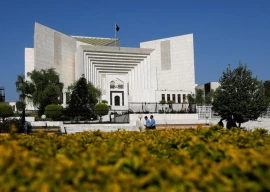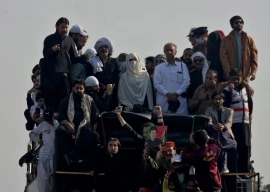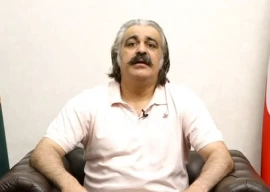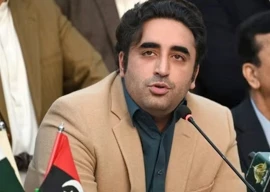
The last educational policy was implemented in the years 1998 to 2010 and when the Pakistan Peoples Party took over in 2008, they announced a new policy but it seems to have gotten lost in the affairs of the 18th amendment and the devolution of the education ministry in 2010.
National education policy: Govt will not rush consultations: Baligh
In 2014, a 26-member advisory committee, comprising senior educationists and policymakers, was established to revamp and implement the existing policy from 2009. A rough draft of the policy was finalised in October 2016 but in lieu of feedback from related bureaucrats and politicians, it has remained just a draft.
In hindsight, the Federal Education and Professional Training minister announced in 2015 that the revised policy will be released by January 2016. In May 2016, the minister told The Express Tribune that a policy will be finalised and announced by the end of 2016. However, since then, owing to the lax attitude of the provincial and national level officials no headway has been made.
Educationists, privy to the matter, have expressed exasperation over the prolonged delay and term it a bad omen. “The final draft has been forwarded to all the provinces and so far only Sindh sent their feedback. The other provinces have not replied, despite two reminders being sent to them,” said Higher Education Commission (HEC) Advisory Council member Mahmoodul Hasan Butt.
Education and social safety nets: what budget numbers say
“The policy devised in 1992 suffered the same fate as the one formulated in 2009. Neither of them could be implemented because of political reasons and delays,” said a senior member of the HEC advisory council. He went on to say that around Rs40 million was spent on the failed educational policies of 2009, even though the original allotted budget was Rs2.6 million.
He also expressed concern over the delays in finalising policy, saying that the volatility of the country’s political situation may render all efforts useless if the policy is not finalised in time.
The original policy from 2009 had nine chapters but no separate categories for primary, secondary and higher education, the different tiers jumbled under one chapter. The new policy has 19 chapters and comprehensively covers primary to higher education, while also being inclusive of technical education in the country.
K-P unifies middle school exam policy for public, private sectors
Another member of the committee, wishing to be anonymous, expressed serious reservations and said the policy should be announced before it is too late.
“Education policy and its implementation have never been taken seriously in Pakistan and it clearly shows where the government’s priorities lie,” he said.
It is pertinent to note that ever since the education ministry was devolved in 2010, none of the provinces have taken steps to formulate an education policy, even though it was awarded as a provincial subject. Even though, an education ministry was established to meet international obligations, the ministry is just subsequently going through name change, the Ministry of Federal Education and Professional Training being the fifth title.
K-P Education Bill 2017: NGO picks out missing clauses
Another member HEC advisory council, Dr Muhammad Saleem said that in 2012, parliament passed a bill for free and compulsory education for children between the ages of five and 16. However, there was no action taken once the bill was passed. “Are these our priorities?” he asked.
Allama Iqbal Open University Vice Chancellor Shahid Siddiqi has authored a book on Pakistan’s education policies. He was of the view that “Developing policies on top of already existing policies is the basic problem,” he said, adding that every government should come up with their own policies. He further informed this scribe that in 1998 the education policy specified that 4.0 per cent of gross domestic product will be spent on education but it was never actually implemented.
Without sharing any definite details, the education minister reassured The Express Tribune that the policy will be finalised soon.

















COMMENTS
Comments are moderated and generally will be posted if they are on-topic and not abusive.
For more information, please see our Comments FAQ